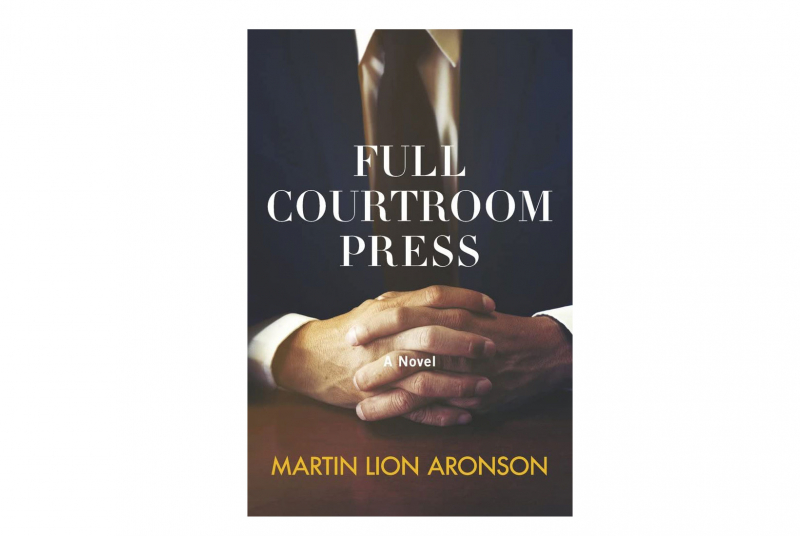
Alumni Books
The following books were not included in our print edition:
In his novel Full Courtroom Press, attorney Martin Lion Aronson ’55 takes readers behind the scenes with a civil trial lawyer who strategizes to overcome obstacles in two cases replete with mysterious witnesses and unexpected bombshells as intrigue swirls in his personal life [BookBaby].
Henry L. Clarke ’62, the first U.S. ambassador to Uzbekistan, describes what it took to develop a diplomatic relationship with the former Soviet republic and create a presence in Tashkent in A New Embassy along an Ancient Route in Uzbekistan [New Academia Publishing].
John Adler ’66 packs two decades of research on the massive output of a renowned 19th-century cartoonist into America’s Most Influential Journalist: The Life, Times and Legacy of Thomas Nast, an 830-page biography that includes 1,000 images [Generic Press].
Co-edited by James Lenfestey ’66, The Uncommon Speech of Paradise: Poems on the Art of Poetry highlights 120 works by poets from 17 countries who speak in spirited and eloquent poems about their art [White Pine Press].
Lyle Nyberg ’69 digs into the history of drainage ditches that early colonists dug in East Coast salt marshes and the ditches created in the early 1900s to eliminate mosquito breeding grounds—and how those ditches could threaten the future of marshes as sea levels rise—in Ditching the Marshes: A History and Bibliography [self-published].
Trapped for millennia in a massive subterranean cavern in Yosemite National Park, the last remaining dire wolves—deadly beasts as large as tigers and long believed to be extinct—are freed when a 6.9 earthquake strikes in Canis Dirus, a new thriller by Denis O’Neill ’70 [Off the Common Books].
In If Not Us…, a novel by Rick Gerardi ’74, the central character’s anguish about toxic contemporary politics spur him to try hypnosis, which opens a portal to a story of the enmity—loyalists vs. patriots—that existed among neighbors, friends, and family during the Revolutionary period [Amazon Pro Hub].
In You Should Smile More: How to Dismantle Gender Bias in the Workplace, six authors with C-suite experience in a combined 29 industries—including Dawn Hudson ’79 and Angelique Bellmer Krembs, Tu’94—offer realistic strategies on little things to do to dismantle the stubborn remnants of gender bias at work [Simon & Schuster].
Robert Dinsmore ’80 offers a collection of whimsical short stories about the unexpected—from a mistaken suitcase and haunted houses to a crazy trip to a wedding in a jalopy—in You’ll Never See It Coming [Big Table Publishing].
In The Summer of Christmas, screenwriting duo Juliet Aires Giglio ’84 and her husband Keith Giglio spin a rom-com romp of a tale about a young screenwriter, Ivy Green, whose TV Christmas movie based on her breakup with her high school sweetheart is being filmed in their hometown—much to his chagrin [Sourcebooks Casablanca].
Laurie Kretchmar ’84 offers a savvy guide on how to effectively use social media to connect with clients and the public about products and causes in Tweet This! How to Amplify Your Brand on Twitter [Up With Social Media].
Molly Phinney Baskette ’92, a minister diagnosed with cancer at age 39, describes how her relationship to God was tested in profound ways in How to Begin When Your World Is Ending: A Spiritual Field Guide to Joy Despite Everything [Broadleaf Books].
Essays, poems, and letters from the 1700s to the present enrich American Wildflowers: A Literary Field Guide, a carefully curated and wildly diverse field guide edited by poet Susan Barba ’97, senior editor of The New York Review of Books, with watercolor illustrations by Leanne Shapton [Abrams].
Christopher Rea ’99 challenges researchers—from high school students to professors and entrepreneurs—to pose key questions about the problems they want to investigate in Where Research Begins: Choosing a Research Project That Matters to You (and the World) [The University of Chicago Press].
In Keepunumuk: Weeâchumun’s Thanksgiving Story, a children’s picture book co-authored by Anthony Perry ’99, two kids from the Mashpee Wampanoag tribe learn the story of the first Thanksgiving—Keepunumuk means Harvest—and the importance of corn, or Weeâchumun [Charlesbridge Press].
In her memoir, When the Church Burns Down, Cancel the Wedding: Adventures from the Other Half of Single, Sara Braca ’99, now a marketing executive who lives in Tuscany, Italy, details how she has found happiness in her unconventional post-divorce globe-trotting [New Degree Press].
London in Black: The Attacks Won’t Stop. Neither Will She is a thriller by Jack Lutz ’01 set in England in 2029, with flashbacks to 2027, when terrorists deployed a sophisticated and highly lethal nerve gas called London Black near Waterloo Station [Pushkin Press].
Sun Moon Secret, a beautifully illustrated children’s book by Shazia Omar ’01 set in her homeland of Bangladesh, is about twin sisters who channel their magical powers to save their village from drought [Guba Publishing].
In The Midcoast: A Novel, Adam White ’05 spins a tense crime drama about a high school English teacher who returns to his small hometown in coastal Maine and starts to piece together the web of lies behind the surprisingly remarkable rise of a lobsterman and his wife, whom he knew growing up [Hogarth].
Claire Dunning ’08, an assistant professor of public policy at the University of Maryland, delves into the history of municipal reliance on nonprofit organizations to address problems of poverty—and how shifting that responsibility has failed the communities it meant to help—in Nonprofit Neighborhoods: An Urban History of Inequality and the American State [The University of Chicago Press].
In Naomi Teitelbaum Ends the World, a spooky tale for middle-grade readers by Samara Shanker ’14, a magical Bat Mitzvah gift goes out of control and sends a girl on a supernatural quest [Simon & Schuster/Atheneum Books for Young Readers].










